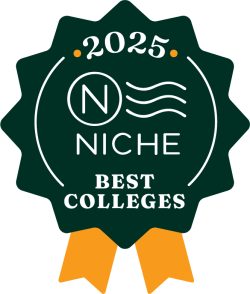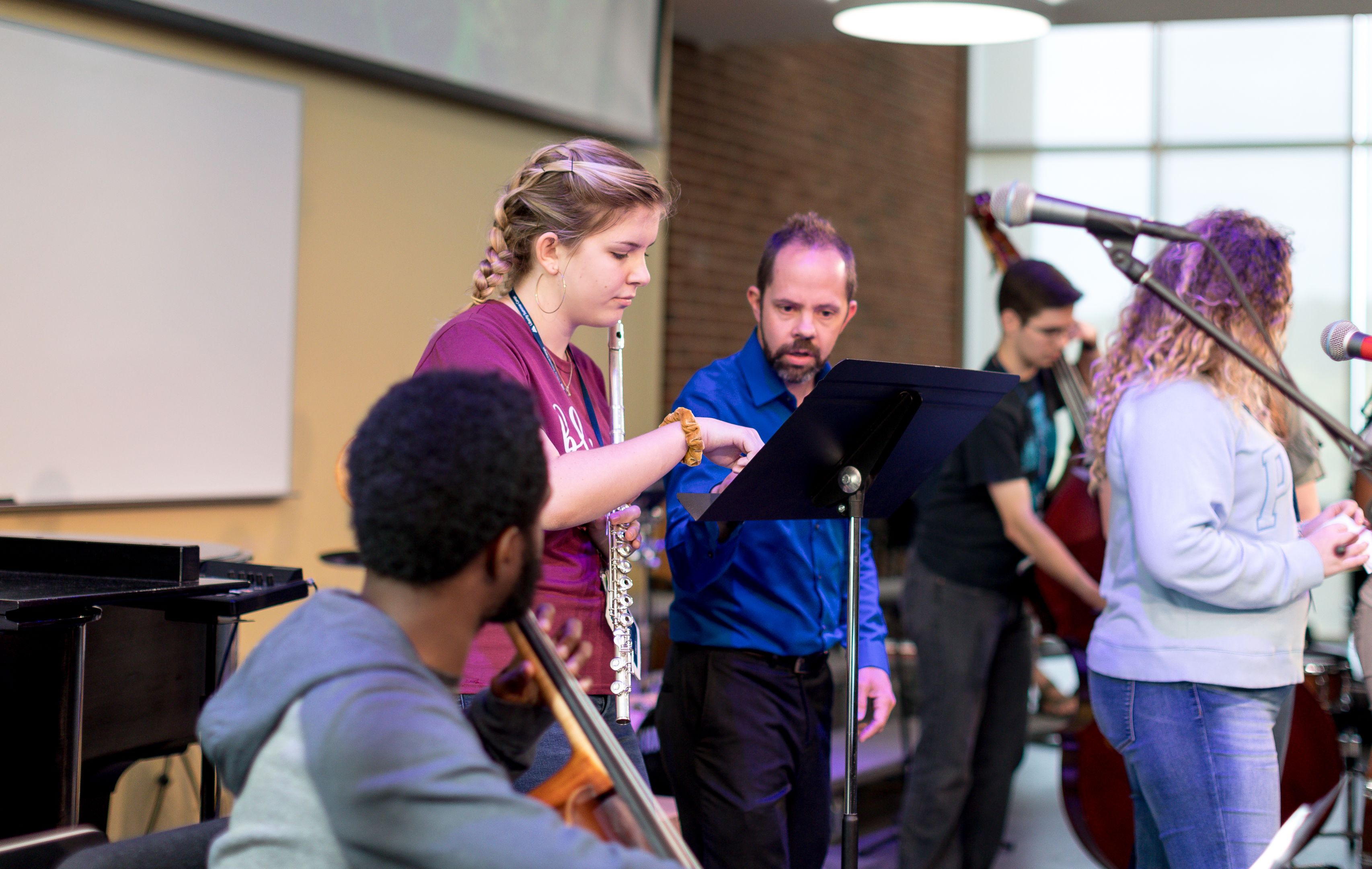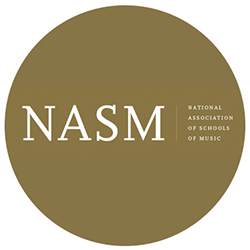Inspire the Next Generation of Musicians with a Music Education Degree
Are you a musician who is excited about sharing your talent and passion for music with young people? If that sounds like you, Liberty University’s Bachelor of Music in Music Education with a specialization in instrumental music may be the degree for you!
This degree program provides an avenue for you to both perfect your talents as a musician and gain the necessary knowledge and experience you need to teach others. Our program provides you with teaching licensure, which allows you to start teaching immediately after graduation.
So what are you waiting for? There is a new generation of young people who are excited about music and need guidance from an expert like you.
Licensure requirements may vary by state. Please research your state’s licensure or reciprocity requirements here: https://www.liberty.edu/statelicensure/.
Award-Winning Campus
At Liberty, you’ll find an affordable, high-quality education that equips students like you for the real world. Our commitment to excellence helped us rank among Niche.com’s Top 3 college campuses in America. Earning your degree from a nonprofit university with state-of-the-art resources like ours can help set you apart from your peers.

Why Choose Liberty’s B.M. in Music Education – Instrumental Degree?
Choosing to pursue your music degree at Liberty University means you’re choosing a program that is highly revered and accredited by the National Association of Schools of Music (NASM). You’ll have access to state-of-the-art equipment as well as instruction and mentorship from caring and professional faculty members.
Our professors are professional musicians with years of experience teaching and training others. They all hold advanced music degrees and are committed to teaching and guiding you along your academic journey.
Another great benefit of this degree program is the hands-on training experience you will gain. Many of your courses are like practice and coaching sessions, which allow you to perfect your musical talents and understanding of best practices in the field of education. Additionally, you’ll participate in student teaching to ensure you’re ready to take on a classroom of your own before you graduate.
What Will You Learn in Our Bachelor of Music in Music Education – Instrumental Degree?
By challenging yourself with a music education degree from Liberty University, you’re setting yourself up for a successful career as either a musical artist or music teacher. We have created a curriculum that provides both practical training and countless hours of hands-on practice and experiences so that you are career-ready upon graduation.
Some of what you’ll study in our music education degree includes harmonic practices and theory, musicianship, chromatic harmony, commercial music, music history, and conducting. Additionally, you’ll take ensemble and applied music studies courses, which you have the flexibility to choose, based on your interest and skill set.
This concentration focuses on some of the following areas of study:
- Brass Techniques
- Instructional Pedagogy Lab for Music Education
- Instrumental Conducting
- Music Technology I: Notation
- Principles of Arranging
In addition to these courses, you will participate in student teaching to gain your teacher licensure before your graduate.
Review the Degree Completion Plan, and check out our featured courses below to learn more about what you’ll be studying!
Featured Courses
MUSC 310 – Principles of Arranging
Here’s what you’ll learn:
- Basic arranging technique for various pop-music genres
- Developing arranging technique for rhythm sections, small vocal and instrumental ensemble, studio recordings, and larger vocal and instrumental ensemble
- Students complete a major arranging project for presentation in an end of the semester concert setting
MUSC 317 – Instrumental Conducting
Here’s what you’ll learn:
- Practical training in directing instrumental ensembles
- Development of baton and left-hand techniques with emphasis on musical interpretation of selected works
- Score study, rehearsal techniques, and performance techniques
MUSC 363 – Percussion Techniques
MUSC 374 – String Techniques
Here’s what you’ll learn:
- Preparation for the teaching of violin, cello, and double bass
- Study of the history, construction, maintenance, and acoustical phenomena of string instruments
Highlights of Our Instrumental Music Education Degree
- Access to 45 full-time faculty members with degrees from some of the most prestigious music schools in the nation
- Our music programs are accredited by the National Association of Schools of Music (NASM)
- Our Center for Music Education and Performance is housed in a 141,000-square-foot building
- Our Center for Worship has been voted “Best of the Best in Higher Education” six years in a row by Worship Leader Magazine
- We are designated an “All-Steinway” school
- Liberty Music Group (LMG) is our very own on-campus recording studio and professional music publishing and recording company
- Our alumni have gone on to become Dove-award winning Christian artists and songwriters
- All coursework is market-driven and focuses on developing your skills for the current industry
BM in Music Education – Instrumental Music Degree Information
- Residential
- 126 total credit hours
- Transfer in up to 75% of your total degree
- This program falls under the School of Music
- View the Degree Completion Plan
- View our course catalog
Career Opportunities for Instrumental Music Education Graduates
- Christian music artist
- Music program director
- Music teacher
- Private music instructor
- Professional musician
Admission Requirements for Undergraduate Degrees
Every application is reviewed by the admission committee on a case-by-case basis, meaning there are no set minimums for acceptance. However, all applicants must submit the following documents* for admission:
- Admission application
- Official high school transcripts
- Official college transcripts (if applicable)
- Results from the CLT, SAT, or ACT are not required for admission, but may be used in consideration for merit-based aid.
- Admission essay
*Note that additional documentation may be requested by the admission committee after your application has been received.




